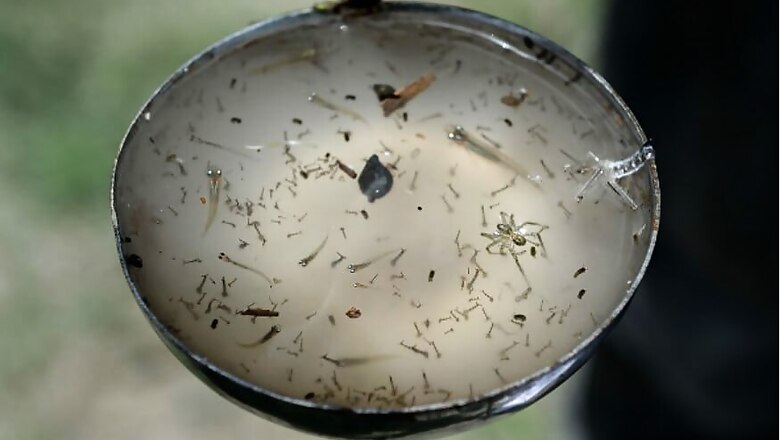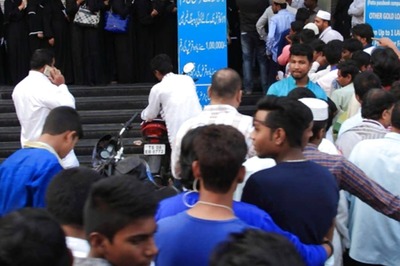
views
Officials and staff from Telangana Health Department, who conduct awareness campaigns by visiting homes said they have seen mosquitoes breeding in stagnant water inside discarded tyres, disposable plastic cups, stored water vessels and even inside discarded coconut shells.
A report published in The Hindu mentioned that even a small quantity of water, as little as 40 ml, can grow mosquitoes leading to such deadly diseases. Monsoons often leave behind stagnant water, which acts as a breeding ground for mosquitoes, which then transmit mosquito-borne diseases like chikungunya, dengue, malaria and even Zika.
According to the report, even small quantities of water can serve as a perfect breeding ground for mosquitoes which transmit virus causing dengue, malaria, and other life-threatening vector-borne diseases.
The report further added that depending upon the severity of dengue, treatment in private hospitals can run into lakhs of rupees.
Notably, it is the anopheles mosquitoes that carry parasites which cause malaria, dengue and chikungunya. Furthermore, viral diseases are transmitted by Aedes Aegypti mosquito, and virus which causes Japanese Encephalitis is transmitted by Culex genus mosquitoes.
Speaking to The Hindu, Programme officer, National Vector Borne Disease Control Programme (NVBDCP), Telangana, Dr. S. Prabhavathi revealed that while Aedes Aegypti genus mosquitoes breed in clean water, Anopheles and Culex genus mosquitoes breed in dirty water.
He further added that Anopheles Stephensi which carries malaria-causing parasite in urban localities, breeds in waters stored in containers.
Dr Prabhavati went on to add that usually, the number of malaria cases increases from the month of June, and dengue from the month of July. According to the doctor, June is observed as an anti-malaria month, while July is observed as an anti-dengue month. According to Dr Prabhavati, volunteers go from home to home to inform people that they should not let water stagnate in vessels, or anywhere in and around homes.
Furthermore, blood smear tests are conducted in 10 per cent of the population to know if anyone is suffering from malaria.

















Comments
0 comment